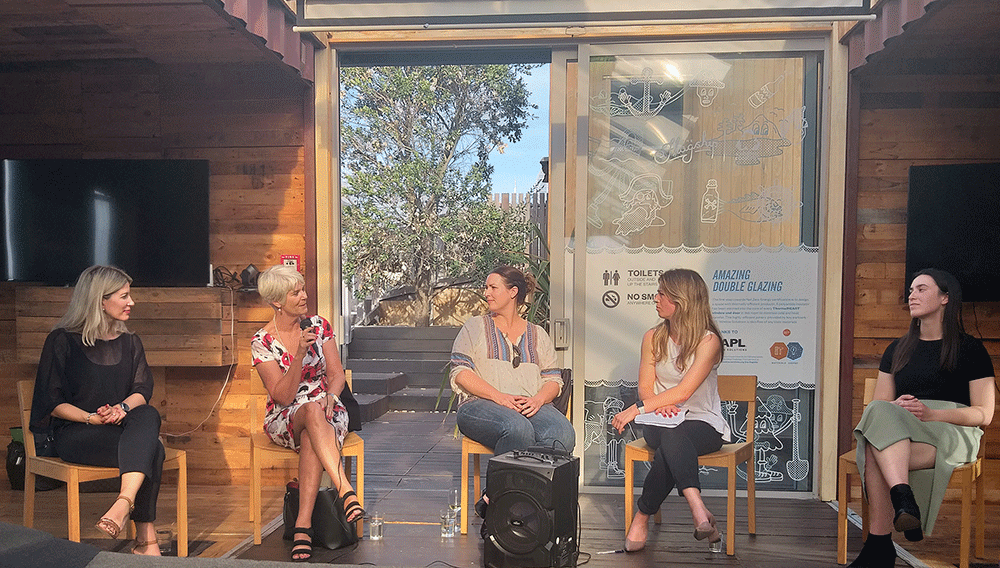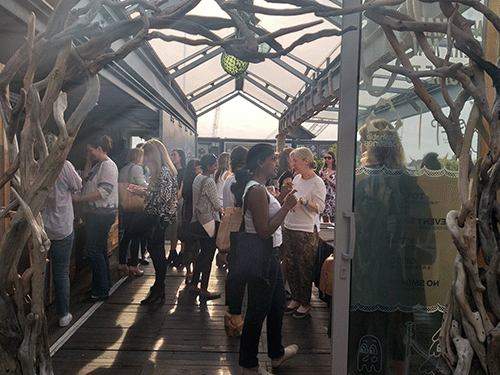Last Wednesday night Vector hosted Auckland’s first Power Women | Mana Wāhine event on how to create an inclusive energy future. Power Women | Mana Wāhine is a collective of women from across industry and Government in New Zealand’s energy sector to strengthen the voice of women working in the New Zealand energy sector.
Whilst the Panel raised a range of perspectives and considerations there was consensus across the board that significant change is required to ensure that our future energy systems deliver the best outcomes for all customers and communities in the context of climate change. The importance of elevating diverse voices in decision making processes – including of women, Māori and Pacific communities, and of customers (particularly those experiencing energy hardship) – also emerged as a key theme across the Panel.

Former Chair of the Electricity Price Review (EPR), Miriam Dean QC emphasised the need for greater collaboration and coordination across the industry, highlighting the need for more women in senior leadership roles. Miriam also emphasised the need for proactive steps to address energy hardship and to ensure that customers experiencing energy hardship are at the forefront of industry.
Dr Julie MacArthur, Senior Lecturer in environmental politics at the University of Auckland (UoA), and author of Empowering Electricity: Cooperatives, Sustainability and Power Sector Reform in Canada, spoke about the importance of enabling infrastructure to empower communities to participate in their energy systems. Infrastructure needs to be designed around the real needs of customers and communities to encourage diverse community participation in renewable energy. Community participation in renewable energy and energy efficiency was also a focus of the Ministry of Business Innovation and Employments’ discussion document Accelerated Renewables and Energy Efficiency. Dr MacArthur also emphasised the need for a truly democratised approach to our energy systems to support community renewable energy – which understands customers as citizens and as participants in their energy systems – not just passive consumers. All citizens have rights, whereas customers have varying degrees of purchasing power and influence, said Dr MacArthur.
Nakia Randle (Ngāti Kahu) represented Te Ara Whatu – a group of Māori and Pacific youth for climate justice. Nakia emphasised the need to allow indigenous leadership to shape our future energy systems in the context of climate change. Te Tiriti o Waitangi is the foundational document of New Zealand’s constitution – and she said that for a just transition to truly be just Te Tiriti needs to be honoured in how decisions which shape New Zealand’s future energy systems are made. Nakia also emphasised the need for an intersectional perspective in how we consider diversity. For example, a typical experience for many audience members may have been being the only woman in the room – however, Nakia raised that it goes beyond just this dynamic, highlighting that there are also experiences of being the only Māori person, only person of colour and only person with disabilities in the room, and many more too. She also described the experience of carrying ‘layers of obligation’.
Vector’s General Manager of Strategic Marketing and Business Development, Marie Eve Bacon, drew on her experience of helping businessses to meet their energy needs and to achieve their sustainability goals through the uptake of new clean energy solutions. Marie Eve emphasised the need to transform whole energy systems, rather than understanding energy supply chains in terms of market or regulatory silos. In response to questions from the floor, Marie Eve emphasised the need for investment and clear and coordinated policy leadership to enable industry to transition to low emissions energy systems. Diverse representation and diversity of thought is a critical element of innovation, said Marie Eve, and, this will be key to transforming our energy system.
 The session left a lot to think about and raised many questions – audience members were asked to consider their own privilege in the room and how socioeconomic privilege cuts across gender and other lived experiences; what it takes to catalyse greater industry investment in clean energy solutions; how to balance the need for Government funding and leadership with the potential risk of tech lock-in; as well as the challenge of ensuring customer voices are empowered in the current electricity market. However, some key themes emerged - the need for more collaboration and coordination across the industry to achieve successful change; the requirement for greater customer and community focus – including a greater commitment to address energy hardship; and the importance of achieving true diversity in the sector, from seeing more women at a senior level, as well as strengthening the voice of minority communities.
The session left a lot to think about and raised many questions – audience members were asked to consider their own privilege in the room and how socioeconomic privilege cuts across gender and other lived experiences; what it takes to catalyse greater industry investment in clean energy solutions; how to balance the need for Government funding and leadership with the potential risk of tech lock-in; as well as the challenge of ensuring customer voices are empowered in the current electricity market. However, some key themes emerged - the need for more collaboration and coordination across the industry to achieve successful change; the requirement for greater customer and community focus – including a greater commitment to address energy hardship; and the importance of achieving true diversity in the sector, from seeing more women at a senior level, as well as strengthening the voice of minority communities.